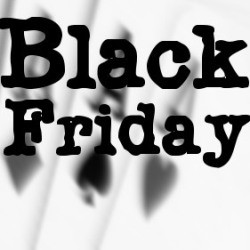U.S. Online Poker Four Years After Black Friday

April 15th marked the four year anniversary of Black Friday, a day when the Justice Department shut down PokerStars, Full Tilt, and Absolute Poker’s online operations in the United States, in so doing pulling the plug on the country’s unregulated online poker market. While PokerStars and Full Tilt exited the US within 24 hours, Absolute Poker put itself in direct opposition to the DOJ by allowing its existing US customers to continue using the site, but just like Full Tilt, the poker room was found guilty of financial fraud, with the two sites missing a combined $200 million in player funds between them.
While the circumstances that led to Full Tilt and Absolute Poker’s disgrace is now specifically legislated against in the USA’s current regulated iPoker states, four years post-Black Friday unregulated poker operators, such as Bodog, continue to flaunt the UIGEA and offer their services stateside.
Industry Torn Down To Pave Way For Legislation
Pre-Black Friday, PokerStars and Full Tilt were undisputed giants of the US online poker market, and by virtue of their popularity could offer players almost unlimited options in terms of variety of cash games, tournaments, and buy-ins. Needless to say, no individual regulated US state or even network of smaller states could hope to compete with global brands PokerStars or Full Tilt, who could be accessed by American players as well as players across the whole globe, and so shutting their US operations then became the only way to level the playing field and prepare the way for a regulated US online poker industry.
Player Protection A Main Goal Of Regulation
One of the main goals of regulated online poker is to ensure player funds are protected, and now company’s are legally required to keep their customers’ money separate from their own operating accounts. Clearly demonstrating the effectiveness of legislation, the USA’s first regulated online poker site, Ultimate Gaming in Nevada, ran into financial trouble 19 months after launching, and following strict guidelines all the site’s customers got paid. Even those players who did not request a withdrawal still were sent a postal check within weeks of Ultimate Gaming’s closure.
In the meantime, unregulated iPoker sites continue to operate outside of the USA’s UIGEA, and while some of Carbon Poker’s customers have been waiting for over two months for a withdrawal, Lock Poker has been labelled a scam site which has held onto at least $10 million of player funds, without having issued a withdrawal in over a year. Needless to say, players gambling at these offshore sites have no recourse, and must simply wait and hope for the best.
US Players Still Weighing Risk To Rewards
Despite the obvious drawbacks to gambling on unlicensed online poker sites, these operations are still continuing to thrive in the US as many players would rather risk not being paid, than playing poker at sites with only minimal traffic. Despite having an outstanding indictment against him, for instance, Calvin Ayre and his site Bodog continues to be the third most popular site in the world with an average of 1,700 cash game players, and a 24-hour peak of 3,365 players. Alternatively, the best the USA’s regulated states can offer is WSOP/888 New Jersey with an average of 180 cash game players, and a 24-hour peak of 457 players, or WSOP Nevada and Delaware Poker with roughly the same traffic. Furthermore, US players outside of these three regulated states have no legitimate way to play online, without traveling half way across the country, or seeking unregulated options on the internet.
No New Regulation Since 2014
Nevada became the first state to launch regulated online poker in April 2013, followed by Delaware in August, then New Jersey in November. At the time there existed great hope other US states would join in and introduce online gambling industries of their own, but more than a year and a half later and these three states remain the country’s only regulated online poker markets. Even more worryingly, only California and Pennsylvania are even having any meaningful discussions on the issue, while Sheldon Adelson and his Coalition to Stop Internet Gambling have helped introduce the Restoration of America’s Wire Act (RAWA) in Congress, designed to forbid online poker and gambling in America.
While tens of thousands of Americans regularly played poker online pre-Black Friday, only a small percentage of these players have shown any interest in trying to encourage action on the online poker regulation front. As a result, few lawmakers have felt motivated to push forward a bill, while lack of revenues in Nevada, Delaware, and New Jersey have dissuaded other states to adopt regulation of their own.
Meanwhile, much of the fight for regulation has been taken up by the Poker Players Alliance, and their latest efforts include organizing an online petition to oppose the Restoration of America’s Wire Act (RAWA). One hundred thousand signatures are needed before the May 02, 2015 deadline, but so far just a trifling 3,963 have been collected.










